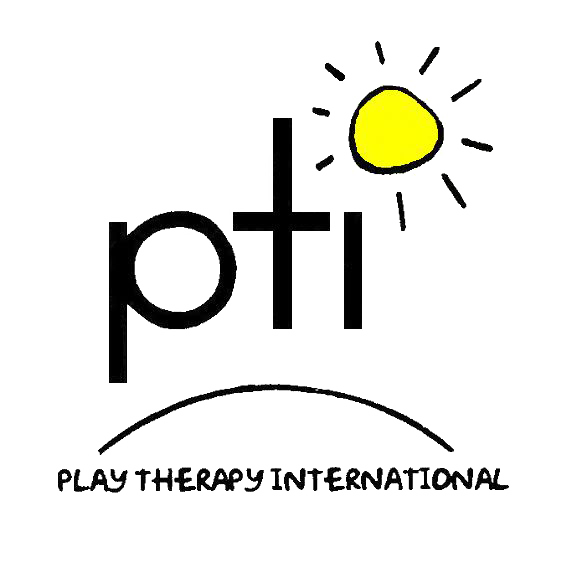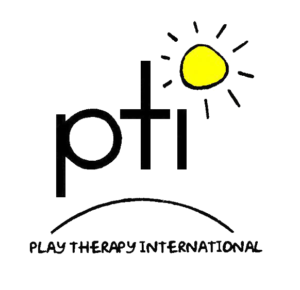The PTI accredited Certificate in Therapeutic Play course is being run in an increasing number of countries. This is the course for you if you wish to start working therapeutically with children, or are already doing so but do not have a full set of ‘play therapy tools’. It is also designed for those who are counselling children using ‘talking therapy’ skills and wish to add the use of creative arts therapies to their practice. Four big advantages of this PTI accredited course is that it is:
Certificate Play Therapy Training Courses
Comprehensive
Covering the main therapeutic play approaches – the “Play Therapy Tool-Kit (TM)”
Competency based
On the rigorous PTI International Standards, including the competencies required for this level of practice
Cohesive
Rather than attend a number of different, disjointed training days, which have a narrow specialist focus you will benefit seeing how the different approaches may be integrated Consistent Wherever you undertake the course you may be assured that the content and learning methods are the same. If you decide to continue to the Diploma course to obtain the skills to become a PTI Certified Play Therapist and undertake this next stage of training in another country or venue you will be joining others who have had the same training.

The post graduate course is designed for anyone with experience of children or adolescents, who either works or intends to work therapeutically with them including:
- Counsellors
- Psychotherapists
- Clinical Psychologists
- Primary School Teachers/Assistants
- Nurses
- Nursery School Teachers/Assistants
- Social Workers & Clinical Social Workers
- Play School Teachers/Assistants
- Care Home Staff
- Adoption/Foster Agency Workers
- Enhance your career/professional skills
- Increase your satisfaction in working with children
- Give you the skills to help children develop their emotional literacy
- Give you the skills to alleviate behaviour and mental health problems
- Assist your own personal development
- Provide you with the Profession Structure Model competencies defined by PTI to work with individual children who have slight to moderate problems
The Certificate course is the first part of programme leading to an MA in Practised Based Play Therapy.
It may be undertaken as a ‘stand alone’ course.
This course is at stage 2 of the PTI four stage training model.
Synopsis
An Enlightened Approach To Coping With Childrens Difficulties
The course is unique in integrating both non directive and directive approaches to play therapy. The programme content is based upon the theory and practice of humanistic psychology, particularly that of Virginia Axline (“Dibs In Search of Self”), and Carl Rogers and the gestalt play therapy approach of Violet Oaklander. It recognises contributions made by others in the 20th century such as Mark Barnes, John Bowlby, Margaret Lowenfeld, Donald Winnicott, Rachel Pinney etc. Opportunities for meditation and all forms of creativity enrich the contents of the course.
The lives of children in the present day are highly regulated and controlled. Non-directive play therapy offers a child the opportunity of making choices and taking responsibility for them; expressing him/herself freely; being accepted unconditionally; having his/her deepest feelings respected and accepted. For these reasons their play is not interpreted and no judgements are made. Such freedoms may only be obtained by the provision of a strong framework.
Therefore the adult takes responsibility for the safety of the child, themselves and the environment. Within these constraints, the child has complete freedom to choose. Time boundaries are also considered to be important thus adding a sense of security by adhering to beginnings and ends. In this way the time within a session becomes timeless and the child’s imagination is set free to explore and recreate his/her experiences and to create and make his/her own world.
There are, however, a number of cases where the non directive needs to be complemented by other approaches. For example working with terminally ill, bereaved, autistic children in organisational settings and short term work. The main items in the ‘Play Therapy Tool-Kit’ are taught and put into practice.
Course Structure
- Module 1 – Course Introduction; Starting to Work Therapeutically With Children; The Therapeutic Play Continuum; Creative Visualisation; Setting Up to Practice; Pharmacology
- Module 2 – Music Skills for Working With Individuals and Attachment theory
- Module 3 – Storytelling & Puppetry Skills for Use With Individual Children; Comparison of Theoretical Models of Psychotherapy
- Module 4 – Sand play skills for working with individuals and related theory; the Use of Natural Materials; Child Development Theory (1); Art Therapy for Individuals
- Module 5 – Dance and Movement skills for working with individuals; Student presentations; Endings
Learning Methods
The course is divided into 5 modules as shown above. Participants will learn through working with other members of the course about the roles and responsibilities of the therapeutic relationship. There will be tutorials on theory but formal teaching and lecturing will be kept to an essential minimum.
Learning will be experiential and collaborative using pair, group work, role-play and case presentations. Homework reading and other assignments will provide new information and consolidation of material from the experiential work encountered within the modules. Assignments will discussed during the following module.
Venues
Awards
- Professional: PTI/PTUK Certificate in Therapeutic Play Skills
- Academic: (if registered with Leeds Beckett University); Post Graduate Certificate of Therapeutic Play Skills with 60 ‘M’ points
15 days consisting of 5 x 3 day modules (Fridays, Saturdays, Sundays) spread over 7 – 9 months. Alternatively as a 15 day intensive course at the Summer School in La Mouline, South of France and in Hong Kong , Sydney, Australia, Hamilton , New Zealand and Ireland
Learning Objectives
The overall purpose is to enable participants to practice safely and effectively using therapeutic play skills in a variety of settings to provide emotional support to individual children for slight to moderate problems. Upon successful completion of the course each participant will have gained:
- A sound understanding of the principles underlying play therapy and the appropriate use of techniques – the play therapy tool-kit
- Practical skills for running therapeutic play sessions with individual children
- An ability to assess children’s needs and organise the provision of therapeutic play facilities
- An appreciation of the ethical issues
- Increased confidence in using therapeutic play with children and adolescents
- The counselling, therapeutic and practical skills to enable you to carry out therapeutic play
- An understanding of the ethical considerations
- Awareness of your own process and development
- Theoretical Knowledge of child development and child psychology
Providers
Fees
Please check with your chosen training provider.
Dates
Up to 4 intakes per year according to demand – please check with your chosen training provider
| Location | Block 1 | Block 2 | Block 3 | Block 4 | Block 5 |
| UK | |||||
| Northern College, Barnsley |
10th – 12th February 2023 | 5th – 7th May 2023 | 14th – 16th July 2023 | 29th September – 1st October 2023 | 24th – 26th November 2023 |
| Crowne Plaza, Belfast |
30th September – 2nd October 2022 | 25th – 27th November 2022 | 20th – 22nd January 2023 | 24th – 26th March 2023 | 16th – 18th June 2023 |
| Moor Hall Hotel, Birmingham | 14th – 16th October 2022 | 9th – 11th December 2022 | 10th – 12th February 2023 | 12th – 14th May 2023 | 21st – 23rd July 2023 |
| The Cambridge Belfry, Cambridge |
30th September – 2nd October 2022 | 2nd – 4th December 2022 | 3rd – 5th February 2023 | 21st – 23rd April 2023 | 23th – 25th June 2023 |
| etc. venues Chancery Lane, London | 23rd – 25th September 2022 | 11th – 13th November 2022 | 20th – 22nd January 2023 | 24th – 26th March 2023 | 9th – 11th June 2023 |
| The Pinewood Hotel on Wilmslow, Manchester |
4th – 6th November 2022 | 20th – 22nd January 2023 | 31st March – 2nd April 2023 | 23rd – 25th June 2023 | 8th – 10th September 2023 |
| Salomons Estate, Tunbridge Wells |
7th – 9th October 2022 | 9th – 11th December 2022 | 24th – 26th February 2023 | 21st – 23rd April 2023 | 7th – 9th July 2023 |
| International | |||||
| Thailand | 2nd – 4th February 2024 | 16th – 18th February 2024 | 1st- 3rd March 2024 | 15th – 17th March 2024 | 29th – 31st March 2024 |
Faculty / Facilitators
Chosen from a faculty of presenters accredited by PTI, APAC and approved by Leeds Beckett University.

